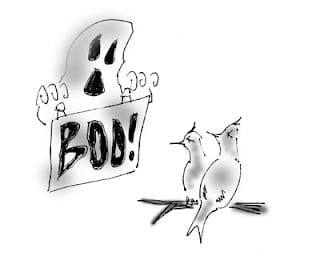Research on some island birds has shown their inability to recognise mammalian predators. This may offer an explanation into how native species in island ecosystems that have evolved in the absence of mammalian predators may have hastened their extinction.
Case in point: the Dodo on Mauritius. Although the bird was large and ungainly with few escape tricks, it may have also been unfamiliar with danger and this may have made it, figuratively speaking, a sitting duck for the rats and dogs and cats that arrived with the first sailors. The presence of this trait in island birds could adversely impact reintroduction programmes of threatened native bird species. Returning these birds into their predator-infested habitats is fraught with peril at the outset.
‘Be afraid, be very afraid’ is the survival mantra that researchers are now teaching birds. And how? By attempting to mix birds from predator-free areas with birds who know how to recognise predators in an enclosure. Researchers hope that the fearless birds would learn the fear response from their conditioned friends.
PhysOrg has more
Technorati Tags: conditioning, bird behaviour, research, fear, predator
- TL;DR – Death Stalks Like A Marabou Stork - July 24, 2024
- Dimorphic Egret – Meet this East African mystery bird - June 8, 2024
- Encounter: Northern Treeshrew in Arunachal Pradesh - May 19, 2024



now that is very interesting, seems like a very sensible idea too.
btw i found your blog via Best Green Blogs